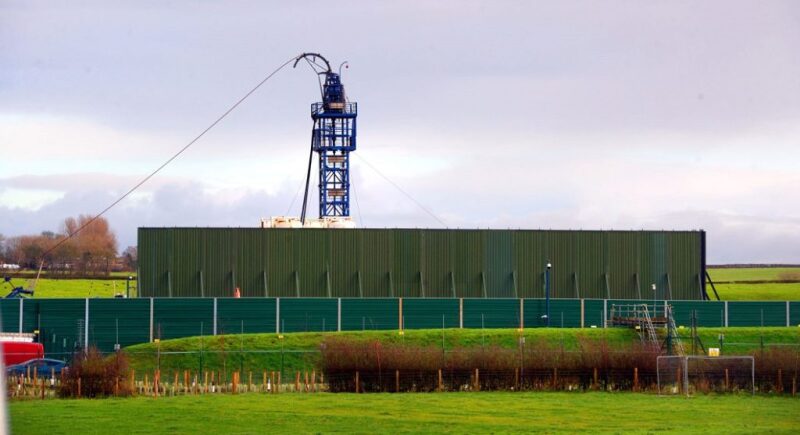The British government will no longer allow hydraulic fracturing after the UK Oil and Gas Authority (OGA) published a report that concluded that predicting possible tremors resulting from the practice is not possible with current technology.
The government said proposals to change the planning process for fracturing work sites will no longer be considered, and the moratorium will continue until compelling new evidence is provided. Bamber Bridge-based Cuadrilla Resources had been in the midst of flow testing its second fractured horizontal well at Preston New Road in Lancashire before operations were again halted due to seismic activity.
Cuadrilla provided OGA with data from fracturing work on its first horizontal well that was flow tested about a year ago. The report covered seismicity observed at Preston New Road, where “the rupture of a previously unidentified strike-slip fault is the likely cause of the larger Preston New Road events,” a study commissioned as part of the report found.
Stimulation activity has been suspended since a magnitude 2.9 event was detected at the site in late August. The event lasted for around a second and the average ground motion recorded was 5mm/second.
Cuadrilla has stopped work on numerous occasions dating back to its first well after seismic events of magnitude 0.5 and higher—the government-imposed limit—occurred around operations. The stoppages called into question the feasibility of continuous fracturing operations given the regulatory constraints.
In a statement following the decision, Cuadrilla said it will review the reports and continue to work with OGA to provide further detailed data, including from the second well, “to address concerns so that the moratorium can be lifted and the highly prospective Bowland gas resource further appraised and developed.”
Cuadrilla during the first flow test was only able to complete two of 41 frac stages “fully as designed,” with gas flowing at a peak rate of more than 200,000 scf/D. However, the company said the test did confirm “a rich reservoir of recoverable high-quality natural gas” and that the rock fractured in a way similar to that in the US.
“Whilst acknowledging the huge potential of UK shale gas to provide a bridge to a zero carbon future, I’ve also always been clear that shale gas exploration must be carried out safely,” said Andrea Leadsom, UK business and energy secretary, in a news release announcing the government’s decision.
Other studies commissioned for the report examined magnitude prediction models, which were determined to be ineffective. While the real-time models did not work when applied to each individual fracturing stage, combining all stages as if they were one large stimulation improved performance, and the models provided warnings 1–16 days for the main events, the report said.
A technique for predicting natural earthquakes with Cuadrilla data captured some but not all the important features of the data. The report concluded that further research using independent datasets is needed but added that “it may be possible to use this technique before future operation” as a forecasting tool.
The report called for data from the second well to be incorporated into the studies, “with work on maximum magnitude prediction given high priority."

